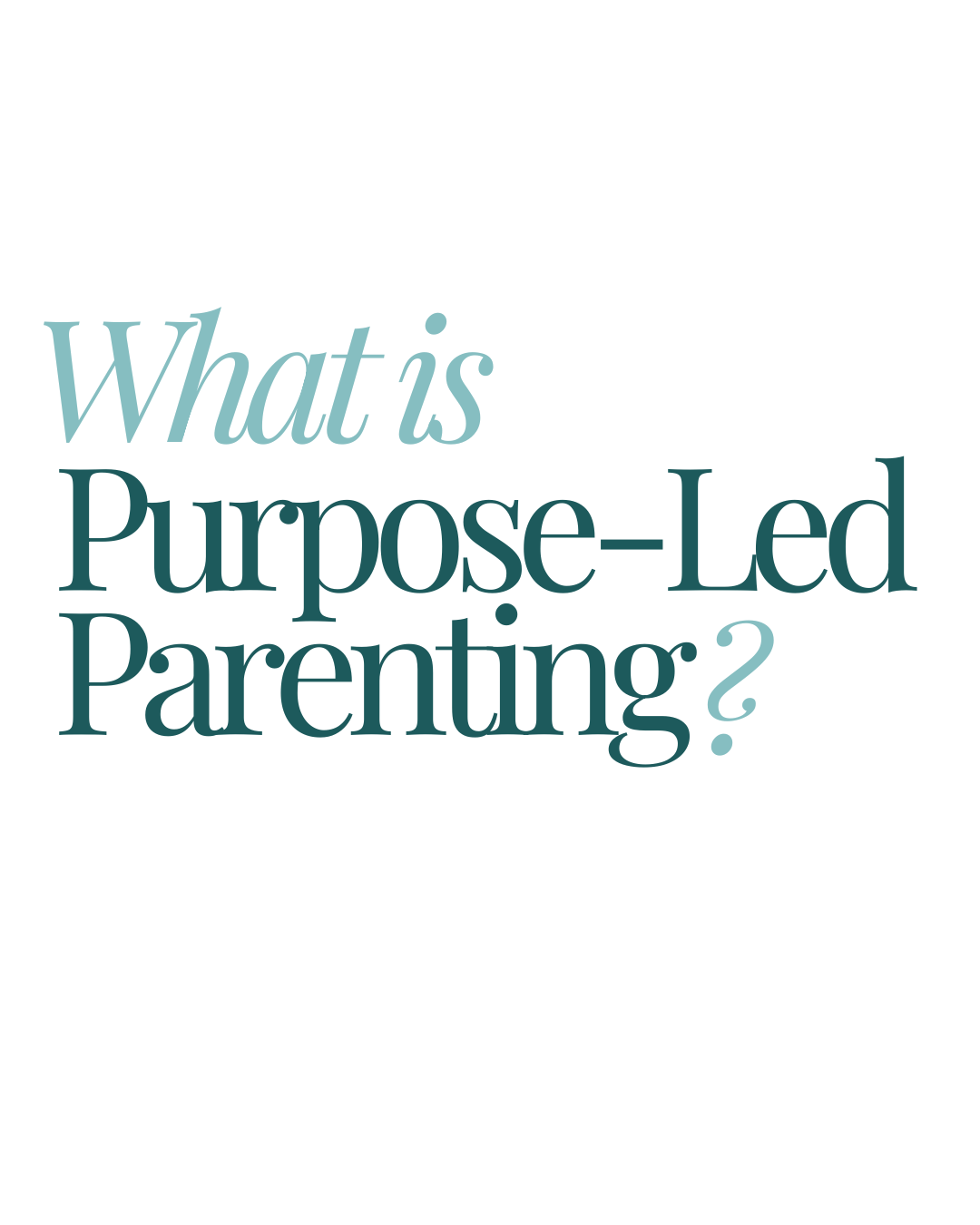
Purpose-Led Parenting: Raising Children Who Stay Connected
Share
What if parenting wasn’t about performance—but presence?
In a culture that glorifies achievement and schedules, purpose-led parenting offers a quiet rebellion: a choice to raise children who are deeply connected to themselves, their values, and the world around them. Not perfect. Not polished. But anchored.
What Is Purpose-Led Parenting?
Purpose-led parenting is the conscious act of raising children with connection at the core. It prioritizes:
-
Inner awareness over outward success
-
Emotional intelligence over compliance
-
Alignment over appearance
It asks: Who is this child becoming? Not just What are they achieving?
This approach is less about parenting from fear—and more about guiding with foresight.
What It’s Not
Let’s be clear about what this is not:
-
It’s not permissive or boundaryless
-
It’s not a new pressure point for parents to "get it right"
-
It’s not an aesthetic, performance, or Instagram ideal
Purpose-led parenting is not about being perfect. It’s about being present, responsive, and aligned.
A Real-Life Example: Responsive Parenting in Action
Imagine your child comes home from school withdrawn and irritable. Instead of reacting to the behavior (“Don’t speak to me like that”), you pause.
You kneel beside them and say, “You don’t seem like yourself. Want to talk or just sit for a bit?”
This is responsive parenting: meeting your child where they are, not where you think they should be.
You’re not excusing the behavior. You’re understanding the cause. This builds trust, not just compliance. And trust is what keeps the door of connection open long after childhood ends.
Looking Forward, Working Backward: Future-Facing Parenting
Purpose-led parenting isn’t just about raising well-behaved kids. It’s about raising purposeful people.
So ask yourself: What kind of adult will my child need to be in 2040?
To thrive in an uncertain, rapidly evolving world, they will need:
-
Self-awareness
-
Emotional regulation
-
Critical thinking
-
Adaptability
-
Integrity
-
A strong internal compass
Now ask: What can I model or teach today that plants those seeds?
This long-view approach is what we call the Centenarian Mindset in parenting. You’re not parenting for the moment. You’re parenting for a legacy.
What Matters Most (Right Now)
You don’t need to do everything. But the things that matter most?
1. Presence
Your child doesn’t need you to be available 24/7. They need you to be available when it matters. A 10-minute attuned conversation outweighs hours of distracted time.
2. Connection
Children are wired for connection. When they feel emotionally safe, their capacity to learn, grow, and take healthy risks expands. Your relationship is the soil their confidence grows in.
3. A Love of Learning
Not schoolwork. Learning. Ask questions. Let them lead. Follow their curiosity. Purpose-led parenting fosters lifelong learners who trust their own interests and inner signals.
Raising Purposeful People Starts With You
You can’t model alignment if you’re constantly abandoning yourself. Purpose-led parenting begins with self-honesty:
-
Where am I out of alignment?
-
What patterns am I repeating that I don't want to pass on?
-
What do I want my child to know deeply—not just hear from me, but see in me?
You don’t need a degree in child psychology. You need integrity, responsiveness, and rhythm.
Raising children who stay connected in a disconnected world is sacred work.
You are not here to mold them into something. You are here to walk beside them as they become who they already are.
And in doing so, you remember who you are too.
